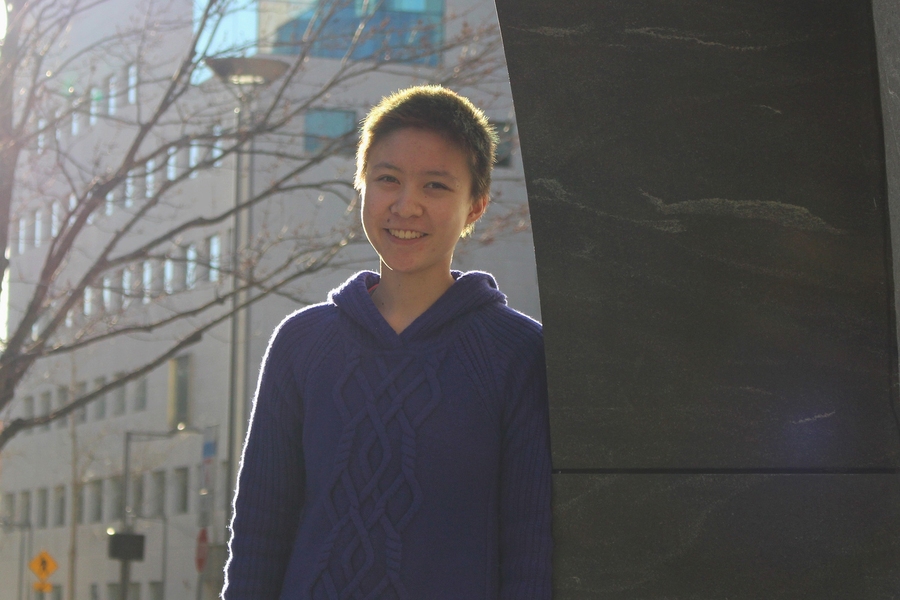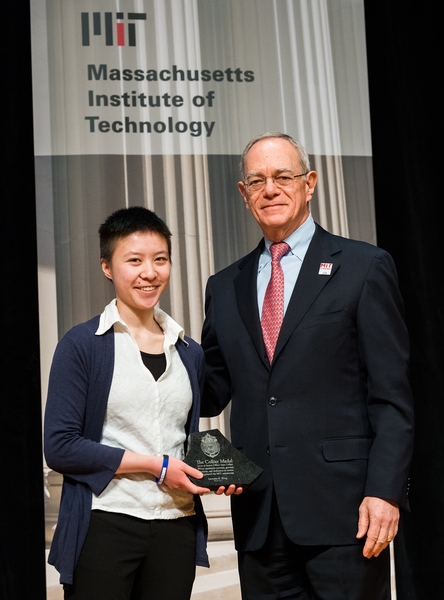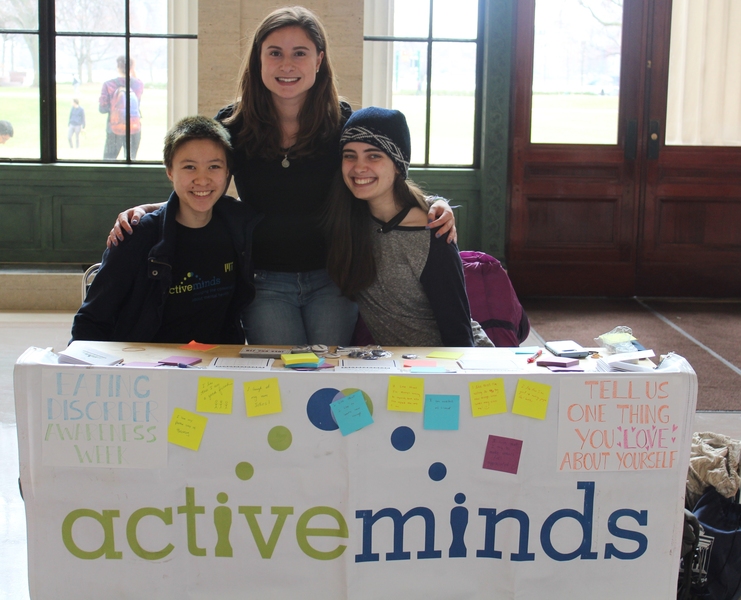In 2014, MIT created the Collier Medal to honor Police Officer Sean Collier’s commitment to engaging with the community around him during his time at the Institute. The medal is a living memorial to Officer Collier, who gave his life in service to MIT on April 18, 2013.
“How do you pay homage to a person who made the ultimate sacrifice, and also remember the person that he was?” asks MIT Chief of Police John DiFava. “We’ve memorialized him in two ways. We’ve built this beautiful structure in front of Stata and the Koch Institute, and we created the [Collier] Medal, which keeps [Sean] alive, in terms of what he stood for, what he was, and what he represented on this campus.”
This year’s recipient, MIT senior Lorraine Wong, embodies the spirit of service the Collier Medal commemorates. Jared Berezin, a lecturer in the Department of Comparative Media Studies/Writing, met Wong through the Increase Help Seeking working group on campus, part of MIT’s MindHandHeart Initiative. The group was created to develop ways to connect those who are struggling with mental health to resources, and to reduce the societal stigma seeking help can bring.
“As the student co-chair of the working group, Lorraine holds a leadership position, yet rather than take a commanding role over meetings, they often prefer to listen intently to the members of the group,” says Berezin. “Lorraine is typically the first to volunteer to do critical work on our group’s behalf — ranging from setting up our infrastructure needs to preparing key questions for the group to consider — yet they show little interest in receiving recognition. They want to learn as much as they can, and do as much as possible to bring about meaningful, potentially life-saving changes on campus.”
The suicide of a close high school friend spurred Wong’s interest in mental health and mental illness.
“We didn’t talk about mental health or mental illness in my high school. It felt like people just went on. Statistically, there are so many people dealing with the same things, and they just keep it inside and don’t feel like they can talk about it,” Wong explains.
As an MIT freshman, Wong joined the campus group Active Minds, a peer outreach group whose mission echoes that of Increase Help Seeking. Their mandate is to utilize peer outreach to increase students' awareness of the issues surrounding mental health, symptoms of mental illness, and the available resources for seeking help, while serving as a liaison between students and the administration and mental health community.
“There’s nothing wrong with you if you have a mental illness or mental health issues. At MIT, many people were somewhere near the top of their high school class, they’ve been pretty successful, and often times they had people right there to support them. When you’re here, and you’re in your freshman fall, and you’re taking classes that you’ve never taken before with so many talented students, it’s not going to be as easy to succeed. And if you’re struggling but you don’t feel like you can reach out for help, that can hurt academically as well as personally and emotionally,” Wong says.
This quiet commitment to helping others and an interest in science and technology intertwined in Wong from an early age. In addition to mental health advocacy, Wong also volunteers for programs that encourage girls to connect to STEM fields. Growing up in Los Altos, California, they attended a K-12 STEM-focused school, actively participated in two Girl Scout troops, and helped to create a third.
“In high school, I did robotics. We had a Girl Scouts team called Space Cookies,” shares Wong. Jointly sponsored by NASA and the Girl Scouts, the robotics team was a special troop that exposed young women to designing, fabricating, and programming robots in a group setting. “We were able to work at the NASA Ames Research Center. It was an amazing experience.” During their senior year, Wong helped create the middle school version of the troop, ensuring that girls as young as 12 could participate.
Wong's interest in this advocacy continued at MIT, where they participated in the Women’s Initiative, an outreach program that sends students majoring in STEM fields to schools around the country to talk to girls about engaging with STEM. Wong spent a week in the Lowell, Massachusetts school district, speaking to middle school girls about different kinds of science and engineering, and finishing with a hands-on project extracting DNA from strawberries.
“The girls were taken out of the class to meet with us. It was a special time for them to be able to be on their own, have engineering and science on their minds, while not having the stereotypes filtering in from other people also working on the same things,” says Wong.
With these dual interests in mental health and gender, it should come as no surprise that Wong is a double major in brain and cognitive sciences and the Program in Women and Gender Studies. After they graduate, Wong plans to work at nonprofits for a few years before going to grad school for degrees in social work and public policy. While many of the activities they are involved with on campus touch mental health and gender, they are also part of the greater Boston advocacy community, working with Planned Parenthood, the Samaritans crisis hotline, and GLAD, the GLBTQ Legal Advocates and Defenders, where they volunteer at GLAD Answers, a legal infoline.
“I love MIT’s mission,” Wong says. “Our motto is 'mind and hand,' but I think our mission closes with something like ‘we’re trying to teach our students science, tech, and engineering for the betterment of humankind.’ It’s not that we’re teaching these things to make money, or make cool discoveries, but we’re doing it for or to help people. It’s not just science — there’s a human aspect to everything we do.”









